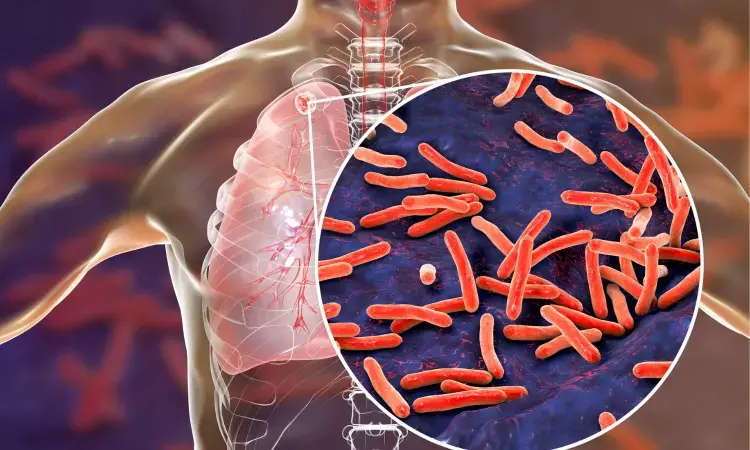- Home
- Medical news & Guidelines
- Anesthesiology
- Cardiology and CTVS
- Critical Care
- Dentistry
- Dermatology
- Diabetes and Endocrinology
- ENT
- Gastroenterology
- Medicine
- Nephrology
- Neurology
- Obstretics-Gynaecology
- Oncology
- Ophthalmology
- Orthopaedics
- Pediatrics-Neonatology
- Psychiatry
- Pulmonology
- Radiology
- Surgery
- Urology
- Laboratory Medicine
- Diet
- Nursing
- Paramedical
- Physiotherapy
- Health news
- Fact Check
- Bone Health Fact Check
- Brain Health Fact Check
- Cancer Related Fact Check
- Child Care Fact Check
- Dental and oral health fact check
- Diabetes and metabolic health fact check
- Diet and Nutrition Fact Check
- Eye and ENT Care Fact Check
- Fitness fact check
- Gut health fact check
- Heart health fact check
- Kidney health fact check
- Medical education fact check
- Men's health fact check
- Respiratory fact check
- Skin and hair care fact check
- Vaccine and Immunization fact check
- Women's health fact check
- AYUSH
- State News
- Andaman and Nicobar Islands
- Andhra Pradesh
- Arunachal Pradesh
- Assam
- Bihar
- Chandigarh
- Chattisgarh
- Dadra and Nagar Haveli
- Daman and Diu
- Delhi
- Goa
- Gujarat
- Haryana
- Himachal Pradesh
- Jammu & Kashmir
- Jharkhand
- Karnataka
- Kerala
- Ladakh
- Lakshadweep
- Madhya Pradesh
- Maharashtra
- Manipur
- Meghalaya
- Mizoram
- Nagaland
- Odisha
- Puducherry
- Punjab
- Rajasthan
- Sikkim
- Tamil Nadu
- Telangana
- Tripura
- Uttar Pradesh
- Uttrakhand
- West Bengal
- Medical Education
- Industry
Nutritional supplementation may limit tuberculosis spread among household contacts of patients

RATIONS study assessed the impact of 6 months of nutritional supplementation on the tuberculosis incidence among household contacts of patients confirmed to have tuberculosis in India.
The 5328 household contacts in the intervention arm received monthly food rations, while the 4283 contacts in the control arm received no nutritional supplementation. The adjusted incidence rate ratio of any form of tuberculosis diagnosis in the intervention arm was 0.61 (39% relative risk reduction).
Undernutrition is associated with heightened tuberculosis incidence and mortality. This study is the first to demonstrate the efficacy of food supplementation in reducing the spread of tuberculosis on a large scale and may inform policy and clinical practice.
This study, "Nutritional supplementation to prevent tuberculosis incidence in household contacts of patients with pulmonary tuberculosis in India (RATIONS): a field-based, open-label, cluster-randomized, controlled trial," was led by Prof Anurag Bhargava, MD and is published in The Lancet.
India bears a significant burden of tuberculosis and undernutrition, with a high prevalence of both conditions co-existing in patients and the general population. This study aimed to evaluate nutritional supplementation's impact on tuberculosis incidence in household contacts of adults diagnosed with pulmonary tuberculosis through laboratory-confirmed microbiological tests.
2800 patients were enrolled with microbiologically confirmed pulmonary tuberculosis across 28 tuberculosis units of the National Tuberculosis Elimination Programme in four districts of Jharkhand, India
Tuberculosis units were randomly divided into control and intervention groups. Both groups received food rations for confirmed pulmonary tuberculosis patients, but only the intervention group's household contacts got monthly food and micronutrients. After initial screening for co-prevalent tuberculosis, all participants were monitored until July 31, 2022, for incident tuberculosis. Independent medical staff in health services determined the outcome.
The study findings are:
- There were 10 345 household contacts.
- Of these, 5328 / 5621 and 4283/4724 household contacts were in the intervention and control groups, respectively.
- Almost two-thirds of the population belonged to Indigenous communities, and 34% had undernutrition.
- We detected 31/ 10 345 household contact patients with co-prevalent tuberculosis disease in both groups at baseline.
- Two hundred eighteen individuals were diagnosed with incident tuberculosis over 21,869 person-years of follow-up, constituting 2.1% of the total. Of these, 122 cases occurred in the control group, and 96 points occurred in the intervention group. Of these, 152/218 were patients who had microbiologically confirmed pulmonary tuberculosis.
- The incidence of tuberculosis, including all forms, decreased significantly in the intervention group, with an adjusted IRR of 0.61. The decline in incidence was particularly notable for microbiologically confirmed cases of pulmonary tuberculosis.
- The intervention group saw a reduction of 39% for all forms of tuberculosis and 48% for microbiologically confirmed pulmonary tuberculosis.
According to the researchers, 30 households (with a total of 111 household contacts) would need to receive nutritional supplements to prevent one case of tuberculosis (incident tuberculosis).
They wrote this is the first randomized trial to investigate the impact of nutritional support on tuberculosis incidence in household contacts, where a nutritional intervention was found to reduce tuberculosis incidence in the household by 39-48% over a two-year follow-up period. This biosocial intervention can potentially accelerate the reduction of tuberculosis incidence in countries or communities where tuberculosis and undernutrition are prevalent.
The study received funding from the Indian Council of Medical Research—India TB Research Consortium.
Further reading:
https://www.thelancet.com/journals/lancet/article/PIIS0140-6736(23)01231-X/fulltext
BDS, MDS in Periodontics and Implantology
Dr. Aditi Yadav is a BDS, MDS in Periodontics and Implantology. She has a clinical experience of 5 years as a laser dental surgeon. She also has a Diploma in clinical research and pharmacovigilance and is a Certified data scientist. She is currently working as a content developer in e-health services. Dr. Yadav has a keen interest in Medical Journalism and is actively involved in Medical Research writing.
Dr Kamal Kant Kohli-MBBS, DTCD- a chest specialist with more than 30 years of practice and a flair for writing clinical articles, Dr Kamal Kant Kohli joined Medical Dialogues as a Chief Editor of Medical News. Besides writing articles, as an editor, he proofreads and verifies all the medical content published on Medical Dialogues including those coming from journals, studies,medical conferences,guidelines etc. Email: drkohli@medicaldialogues.in. Contact no. 011-43720751


